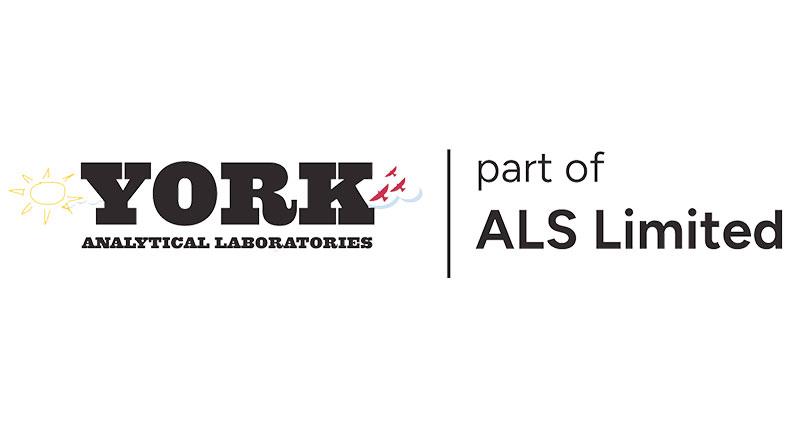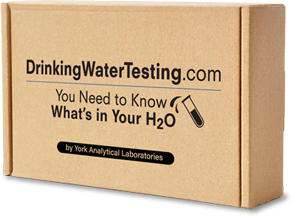Connecticut Water Testing Kits
Private Drinking Water Tests
We offer fast, expert private drinking water tests for Connecticut residents with drinking water from any source: well water, municipal or utility water systems. Our drinking water test kits offer basic to comprehensive tests for all major contaminants.
Our state-certified laboratories Newtown and Stratford have been specializing in drinking water testing for more than 25 years, and we are an industry leader in drinking water testing for dangerous PFAS (“forever chemicals”).
To ensure the utmost accuracy of results, the sample kits should be returned to our laboratory within 24 hours of collecting your samples.
Testing ordered through this page is for informational purposes only. Should you need to conduct drinking water tests required for Connecticut state regulatory compliance, please go to the following pages:
Click for tests for Connecticut Real Estate Transfers and new Well Installations
Click for tests for Connecticut Schools and Child Care Centers; Municipalities and Businesses.

Connecticut Water Testing Kits – Choose Self-Sampling or In-Home Service
The Essential Connecticut Water Testing Kit price is for self-sampling.
- We send you the Testing Kit, you carefully review the instructions, and then you follow the preparation and sampling instructions to collect the water samples. You do have an option to pick up your test kit at our Newtown, CT laboratory.
- Then, you complete the Residential Sampling Form to include, re-pack the test kit with the samples, and send back to our laboratory with the postage-paid shipping label.
- Click here to see the Water Sample Instructions, a complete overview from the time you receive the kit to how to collect samples for each test.
In-Home Delivery & Sampling Service is available.
- You schedule an appointment, and a member of our client service team visits your location to collect the water samples.
- The In-Home service fee varies by location:
$150: All locations west of Hartford
$250: All locations east of Hartford
Know What’s in Your H2O
Water Supply Contamination
The foundation of life, clean water, faces a huge threat. The nation’s water sources — and New York’s — have increasingly found to be contaminated with bacteria, heavy metals (e.g., lead), nitrates from pesticides, disinfectant products, and PFAS from manufacturing / industrial processes. The public should not assume they have quality and safe drinking water from public and private water suppliers.
Detectable levels of PFAS chemicals were found in portions of seven different water utilities, which supply thousands of Connecticut customers in various corners of the state. Those systems were in parts of Newtown, Plainville, Southington, Farmington, Wolcott, Canton, Avon, Burlington and New Hartford.
What is PFAS?
PFAS stands for per- and polyfluoroalkyl substances, widely known as “forever chemicals.” They are a large group of man-made chemicals that have been widely used since the 1940s in industries and everyday consumer products such as: non-stick cookware, water-repellent clothing, stain-resistant fabrics, cosmetics, firefighting foams (AFFF), and more.
PFAS don’t readily break down in the environment or our bodies, which can lead to long-term accumulation and significant health risks.
Risks of PFAS in Drinking Water
All contaminants pose significant public health threats, PFAS in particular because of its widespread presence. Health issues that can result from PFAS include increased risk of cancers (e.g., prostate, kidney and testicular cancers); kidney and liver disease; thyroid problems; decreased fertility; high blood pressure in pregnant women; developmental effects in children; and higher cholesterol levels.
A private study identified 693 locations in Connecticut that appeared to be strong candidates for PFAS contamination, including both abandoned sites and active businesses. All of Connecticut’s major cities and large towns had at least one suspected site, and some — including Waterbury, Danbury, Putnam, Orange, Wallingford, and New Britain — had dozens.
The study also identified locations of known contamination, including around Bradley Airport, landfills and waste sites, a fire fighting training school in Willimantic and a military training ground in East Lyme.
You Need to Know!
Consumers can take several steps to protect their health from drinking water contamination.
- Know your drinking water source – Find out if you rely on public water or a private well and research any known contamination issues in your area.
- Test your drinking water – Ensure your water is safe by having it tested for known contaminants.
- Treat your water if tests reveal presence of harmful contaminants! Consult with water treatment professionals on appropriate water purification and filtration solutions for your needs. Contact us if you’re interested in our New York water testing services and be in the know of what is in your H20.






